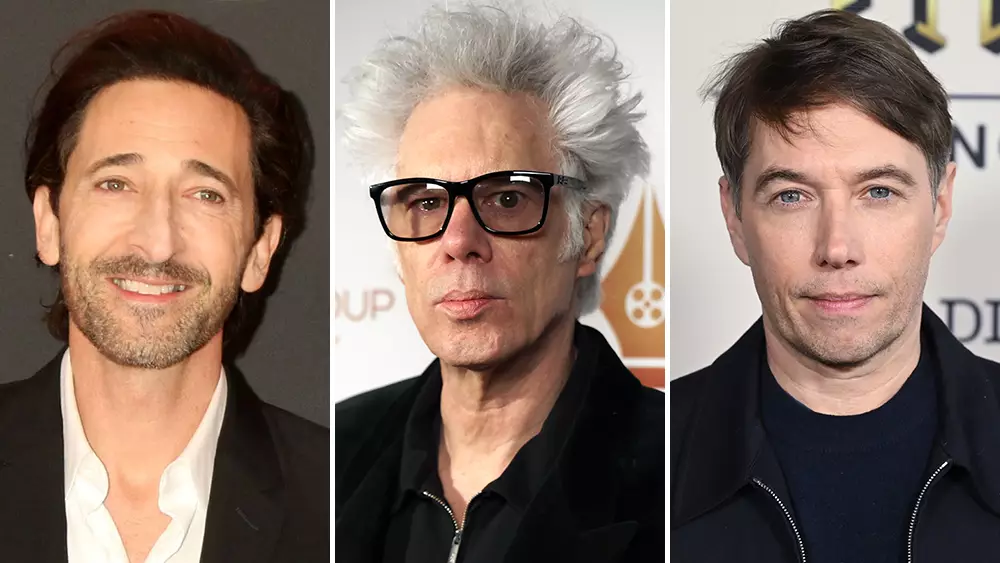In a poignant evening marked by the stark contrast between celebration and crisis, the New York Film Critics Circle (NYFCC) Awards highlighted not only cinematic achievements but also the devastating wildfires ravaging Los Angeles. Adrien Brody, the Best Actor award recipient for his role in “The Brutalist,” found himself wrestling with overwhelming emotions as he addressed his colleagues and supporters. “My heart goes out to all the families,” Brody remarked, visibly shaken. His heartfelt acknowledgment of those suffering from the calamity painted a vivid picture of the industry’s interconnectedness amidst such trying times.
Wildfires, a recurring threat intensified by climate change, have become an ever-looming concern for filmmakers and artists who call California home. Brody’s fellow award winners, Jim Jarmusch and Sean Baker, echoed this sentiment, with Jarmusch taking a stand against climate denial. His impassioned speech called for a collective awakening. “It’s time we wake the f-ck up!” he declared, underscoring the urgency of environmental issues and the profound impact of personal loss in the arts community.
The night also served as a call to unity for the film industry, which often faces challenges that extend beyond the screen. Brady Corbett, who accepted the Best Film award for “The Brutalist,” shared his personal experience of losing his home in a wildfire eight years prior. Corbett’s sharing emphasized the long-lasting effects of such tragedies, not only on property but on the personal lives woven into the fabric of the film industry. The gathering provided a moment of collective reflection on what it means to belong to a community that often faces natural disasters in the world of filmmaking.
The NYFCC ceremony, while typically a night of jubilation and recognition, carried a somber undertone as it acknowledged the ongoing crisis in Los Angeles. David Sims, chair of the NYFCC, articulated the shared concerns of the attendees, noting the strangeness of the circumstance. “It’s a strange night. It was a very, very strange day,” Sims expressed, setting the tone for a night where laughter and celebration were interwoven with tears and remembrances.
This poignant gathering starkly contrasted with the previous night’s National Board of Review ceremony, where the severity of the fires appeared less pronounced. While filmmakers celebrated their achievements and future projects, they remained blissfully unaware of the imminent threat posed by the growing flames. The NYFCC event brought this realization to the forefront, creating an atmosphere where gratitude for safe spaces intersected dramatically with the tragedy afflicting many of their colleagues.
In Hollywood, the consequences of the ongoing fires led to the cancellation of significant industry events, including premieres and award ceremonies. The creeping dread of mandatory evacuations and news of flames encroaching upon neighborhoods cast a shadow over the laughter and applause often characteristic of such gala evenings. Artists gathered in New York on this occasion, but their hearts and thoughts drifted westward, towards their friends battling nature’s wrath.
Despite the dire circumstances, the evening became a showcase not just for recognizing excellence in cinema but for reflecting on the enduring strength of community. The vulnerability displayed by artists served to remind those present, as well as audiences beyond the event, that shared struggles foster a stronger bond. It is during these challenging moments that art and compassion become more vital than ever, serving as a catalyst for change, awareness, and healing.
In closing, the NYFCC Awards transformed from a traditional celebration into a profound acknowledgment of human resilience and an urgent call to action against climate change. As fires rage and communities rebuild, the film industry stands not merely as entertainers but as advocates for change, reminding all that through solidarity, their collective voice can transcend adversity.
